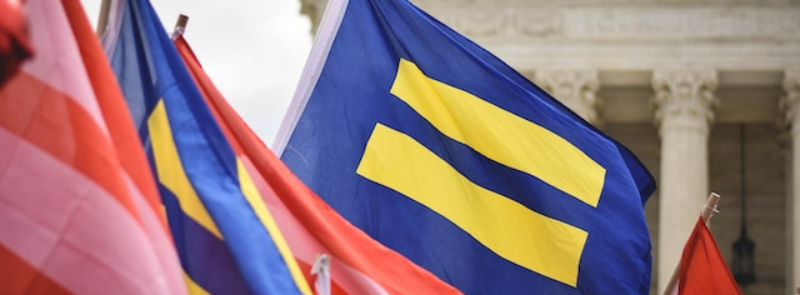
When It Occurs
Every September 18th
Official Website
Timeline
Days Passed (888)
# Hashtags
#InternationalEqualPayDay #GenderPayGap
On September 18th, International Equal Pay Day is observed. Established by the United Nations in 2019, this day serves as a platform to raise awareness about the gender pay gap and the systemic inequities contributing to it. It also underscores the UN's commitment to human rights and its stance against all forms of discrimination, particularly discrimination targeting women and girls.
The day is dedicated to fostering awareness and legitimacy in addressing global gender-based pay disparities. In 2022, the Equal Pay International Coalition (EPIC) highlighted various pay transparency measures implemented worldwide. The gender pay gap, representing the average difference in remuneration between employed women and men, remains evident globally, as data consistently indicate that women earn less than their male counterparts.
History and Background
- Establishment: International Equal Pay Day was officially recognized by the United Nations General Assembly in 2019 through Resolution 74/142.
- Inaugural Celebration: The first International Equal Pay Day was celebrated on September 18, 2020.
- Purpose: The day aims to recognize the importance of achieving equal pay for work of equal value and to mobilize global efforts to close the gender pay gap.
Objectives and Significance
- Raise Awareness: To raise global awareness about the gender pay gap and the underlying factors contributing to pay disparities between men and women.
- Promote Equal Pay: To promote policies and practices that ensure equal pay for work of equal value across all sectors.
- Empower Women: To empower women by advocating for their economic rights and enhancing their economic security through fair pay.
- Encourage Action: To encourage governments, employers, and organizations to take concrete steps towards closing the gender pay gap.
The Gender Pay Gap
- Definition: The gender pay gap refers to the difference in earnings between women and men, typically expressed as a percentage of men's earnings.
- Causes: Factors contributing to the gender pay gap include occupational segregation, differences in education and experience, discrimination, and unequal distribution of unpaid care work.
- Impact: The pay gap affects women's economic security, career advancement, and overall economic equality, contributing to broader gender inequalities in society.
Global Context
- Varied Progress: The gender pay gap varies significantly across countries and regions, influenced by local laws, cultural norms, and economic conditions.
- International Efforts: Global organizations such as the International Labour Organization (ILO), United Nations Women (UN Women), and the Organisation for Economic Co-operation and Development (OECD) work towards addressing pay inequality.
Themes
International Equal Pay Day themes often focus on different aspects of gender pay inequality, such as:
- Pay Transparency: Encouraging transparency in pay policies to identify and address pay disparities.
- Legislative Measures: Promoting laws and regulations that enforce equal pay for equal work.
- Workplace Practices: Highlighting best practices for employers to ensure fair pay and promote gender equality in the workplace.
- Economic Empowerment: Emphasizing the importance of economic empowerment of women and closing the gender pay gap for broader economic development.
Activities and Celebrations
- Educational Campaigns: Governments, NGOs, and organizations run campaigns to educate the public about the gender pay gap and its impacts.
- Workshops and Seminars: Events are organized to discuss strategies and policies for achieving equal pay, featuring experts, policymakers, and advocates.
- Media Campaigns: Media outlets and social media platforms are used to spread awareness and share stories of individuals affected by pay inequality.
- Policy Advocacy: Advocacy groups work to influence policymakers to implement and enforce equal pay legislation and practices.
- Employer Initiatives: Companies may conduct pay audits, review their compensation policies, and implement measures to ensure pay equity.
How to Participate
- Educate Yourself and Others: Learn about the gender pay gap, its causes, and its effects. Share this information with colleagues, friends, and family.
- Advocate for Change: Support policies and initiatives that promote equal pay. Engage in advocacy efforts to push for legislative changes.
- Promote Pay Transparency: Encourage employers to adopt transparent pay practices and regularly review pay structures to identify and address disparities.
- Support Women’s Economic Empowerment: Support programs and initiatives aimed at empowering women economically, such as education and training opportunities.
- Join Events: Participate in or organize events such as seminars, workshops, and discussions on equal pay and gender equality.
Resources and Support
- United Nations: Provides information and resources on gender equality and the economic empowerment of women.
- International Labour Organization (ILO): Offers reports, guidelines, and resources on pay equity and gender equality in the workplace.
- UN Women: Works on various initiatives to promote gender equality, including equal pay.
- Equal Pay International Coalition (EPIC): A multi-stakeholder coalition led by ILO, UN Women, and OECD, dedicated to achieving equal pay for work of equal value.
Notable Observations and Examples
- Legislative Milestones: Some countries have made significant strides in implementing equal pay legislation and policies. For example, Iceland introduced a law requiring companies to prove they are paying men and women equally.
- Corporate Initiatives: Many companies have committed to closing the gender pay gap through various initiatives such as pay audits, mentorship programs, and diversity and inclusion policies.
International Equal Pay Day serves as a critical reminder of the work still needed to achieve gender pay equality. By raising awareness, promoting action, and fostering global cooperation, this day aims to ensure that equal pay for equal work becomes a reality for everyone.


